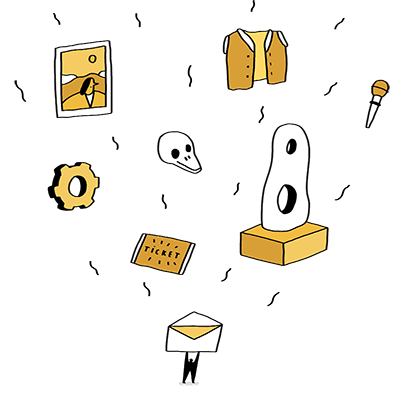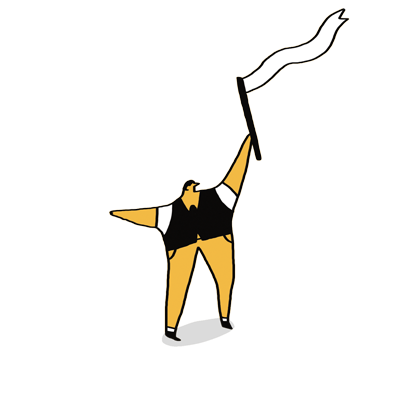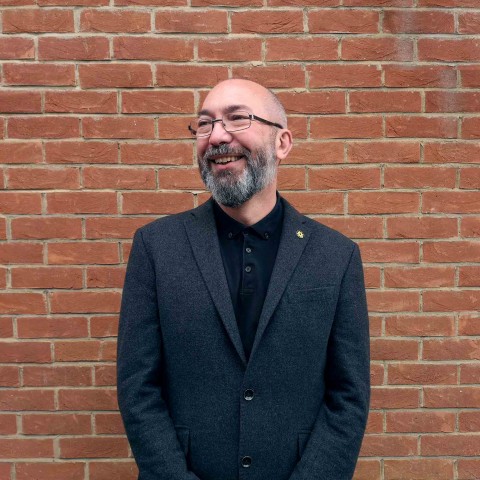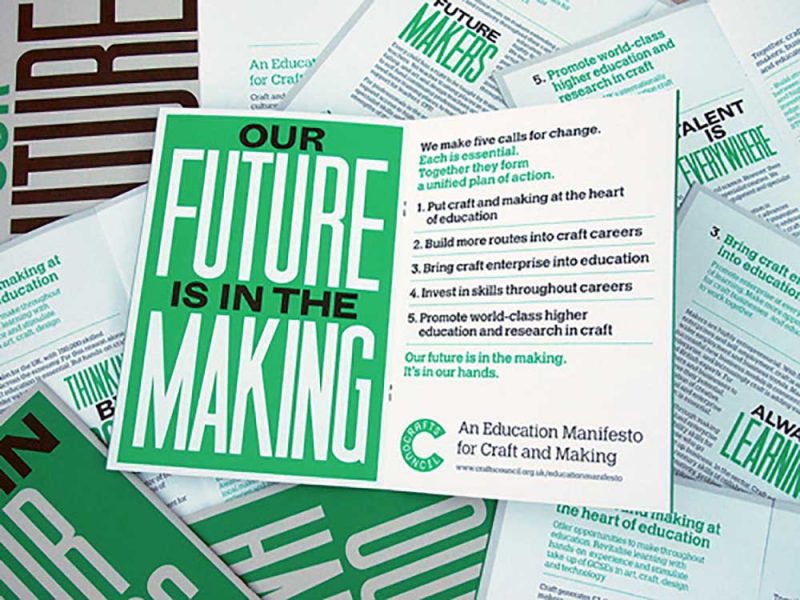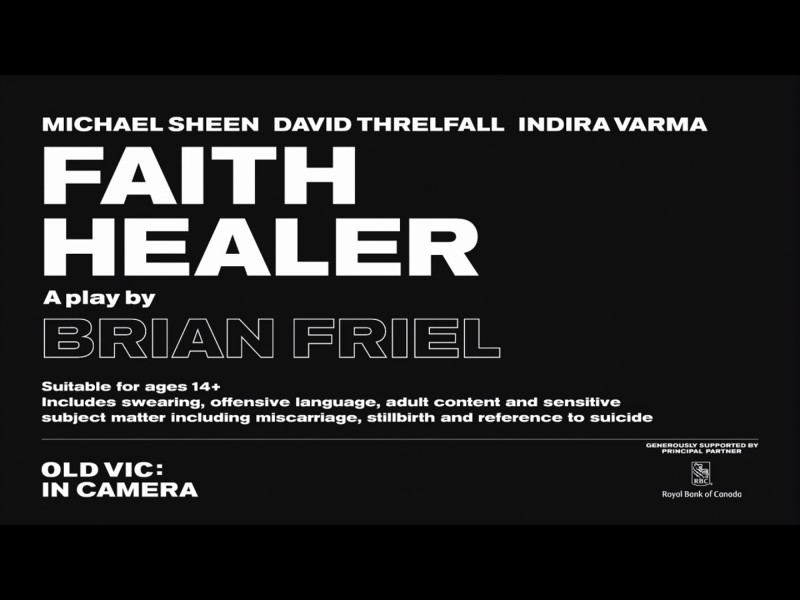As part of our regular breakfast briefing series, we invited former Culture Secretary Chris Smith to come and talk with us about the relationship between the arts and government. Ed chaired the session and Michael has written notes.
Breakfast briefing with Chris Smith
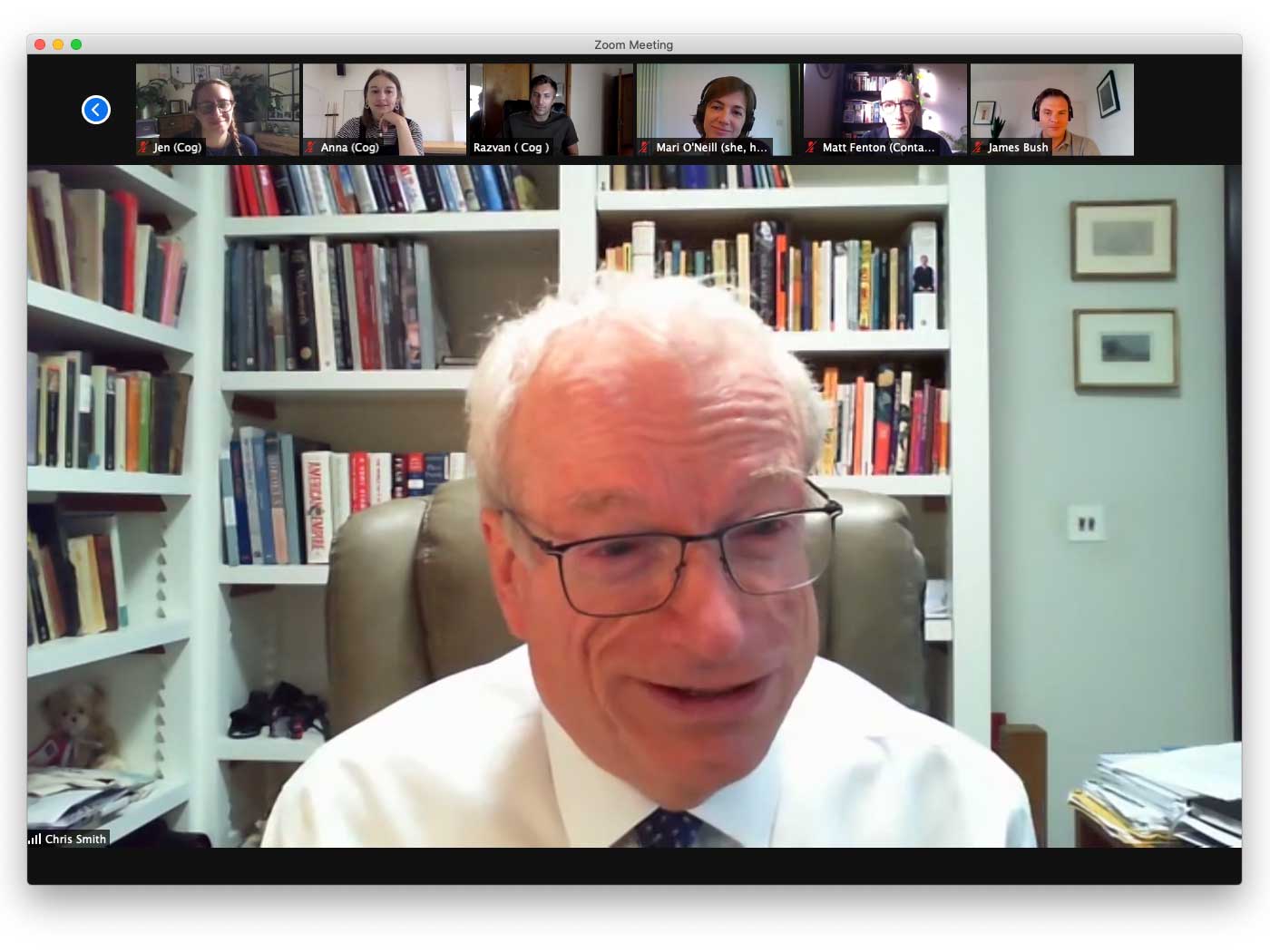
Over his remarkable career in politics and beyond, Chris Smith has always been a champion of arts and heritage.
During his tenure as Secretary of State for Culture, Media, and Sport (a department he shaped) he secured free admissions to Britain’s national museums and galleries. He also began the Renaissance in the Regions programme for regional museums, and brought in major changes to the acceptance-in-lieu scheme. Away from Westminster, Lord Smith has helped to shape the arts and culture sector, including high-profile roles at the Clore Leadership Programme, the Donmar Warehouse, and the Art Fund.
We invited him to talk to us (and a handful of invited guests) about the relationship between the government and the arts sector, and about the challenges our sector faces in a time when lobbying for public funding seems an ever more difficult task. The session was chaired by our Ed Bankes who asked the questions and steered the conversation.
I was enjoying the session too much to take verbatim notes, and it never seems appropriate to record these things, but here’s my recollection of what was said.
Ed kicked off by asking Chris about that big, headline move to free museum admission.
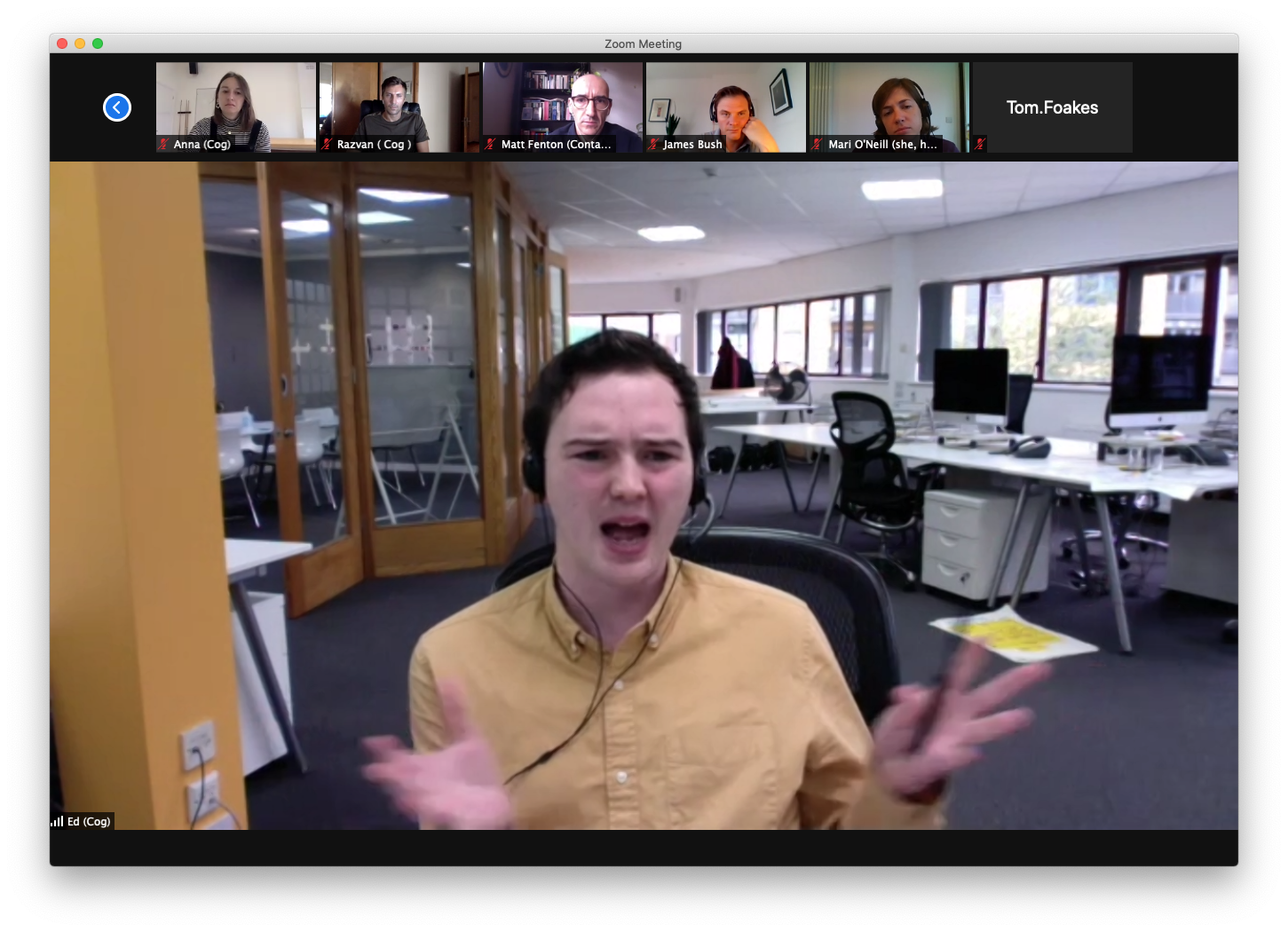
Chris talked about the negotiations with, the scepticism of, the cabinet (led by Tony Blair) and treasury (Gordon Brown). And also about some surprising hostility amongst certain museum heads.
He explained that one museum director didn’t want to make the experience free because he felt that people valued the offer more if they had to pay. Chris argued that if that were the case then maybe the government should withdraw all funding; that director was soon persuaded.
The trickiest negotiations were with the treasury. The move would require a change in the tax laws because without income, museums would not be classed as businesses and could therefore not reclaim VAT (which in turn would make them economically unviable). Chris was told that the EU would never allow the change. So he talked directly with the President of the European Commission, who told him it wouldn’t be a problem.
With the barriers gone, the policy could be changed. The final hurdle… Gordon Brown wanted to be the person to announce the initiative. A frustration but a small price to pay for getting the job done.
It was a genuinely fascinating insight into the messy realities of politics and the personalities that drive decisions.
Ed moved us on by asking about the arguments – how do you best present the value of the arts?
Interestingly, Chris quickly realised that ‘vote winning’ was not an important factor to the Blair government. They were more convinced by the moral argument: these national collections had been amassed through public contribution, why were we asking people to pay again? It was creating economic barriers that kept people away.
Chris’s argument helped when he discovered that Gordon Brown had written an article, as a student, advocating for free museum entry.
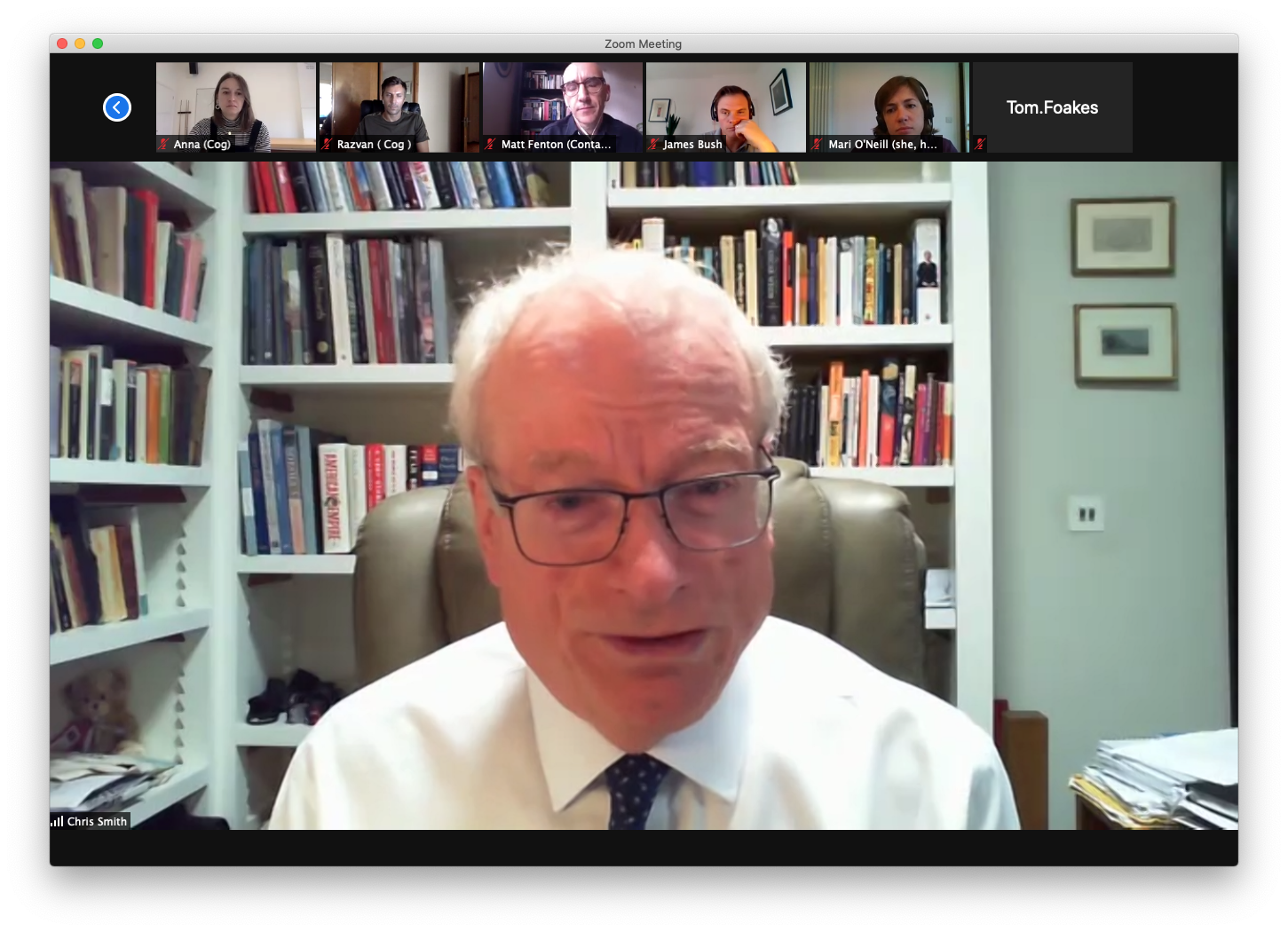
What can we do now? asked Ed. How can we be better at lobbying government? Are we failing because there is no collective voice?
Chris agreed that was an issue.
He said that there are various organisations that are listened to (he quoted the National Museum Directors Association, the Museums Association, UK Music etc) but they tend to be in silos.
He argued that theatre should not just be relying on the voice of Lord Webber or Sam Mendes to make the case. There needs to be a collective voice from artistic directors within the funded sectors, speaking with the commercial sector.
Chris talked about there being “synergies of interest” between the funded and commercial arts. Both are trying to get people into an indoor space; both have fallen between the cracks of the implacable furlough and ‘daughter of furlough’ schemes. He explained that there is plenty of common ground to make the argument – we need to have a collective voice that includes subsidised theatre directors, alongside the Nica Burns and ATG voices.
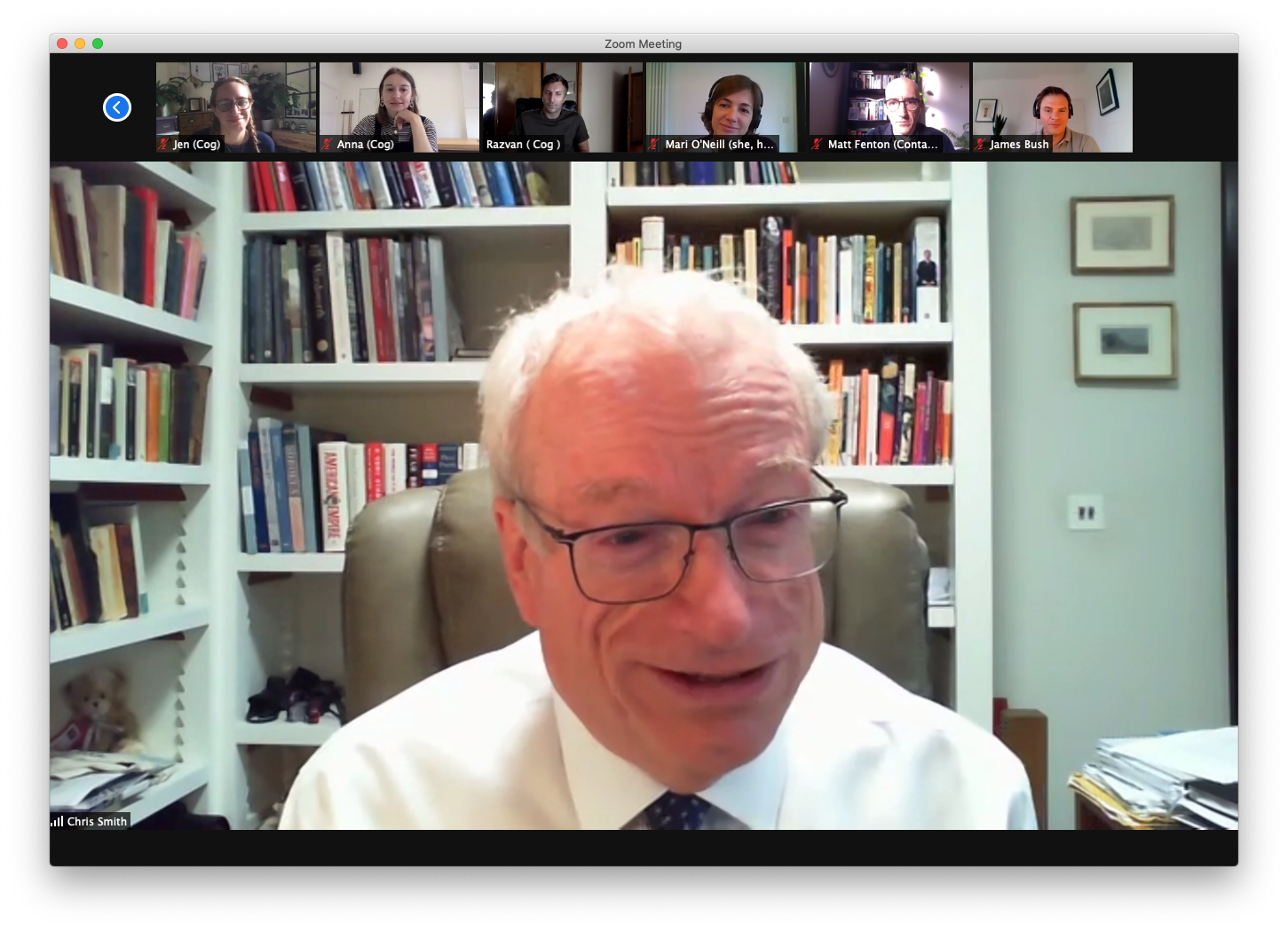
Ed brought us back to public perception.
Chris explained that ‘we hide our light’. We know that more people go to the theatre than to professional football each week. But politicians are much more swayed by football because it is perceived as being more popular (or maybe populist).
He feels that a big part of the problem is the perception that the arts are for the middle classes.
That’s not a valid thing, he explained. It’s an old image from previous generations that’s fixed in the minds of politicians. Their perception needs to be changed in order to persuade them that the arts are worth supporting.
Ed wanted to know more about Chris’s time in the cabinet. How did the Department of National Heritage become the DCMS?
Chris explained that the Department for National Heritage had been created (by John Major) around David Mellor. Mellor had eclectic passions that included opera and football, which is how sport got bundled in with politics. Some of us remember Mellor being dubbed ‘Minister for fun’.
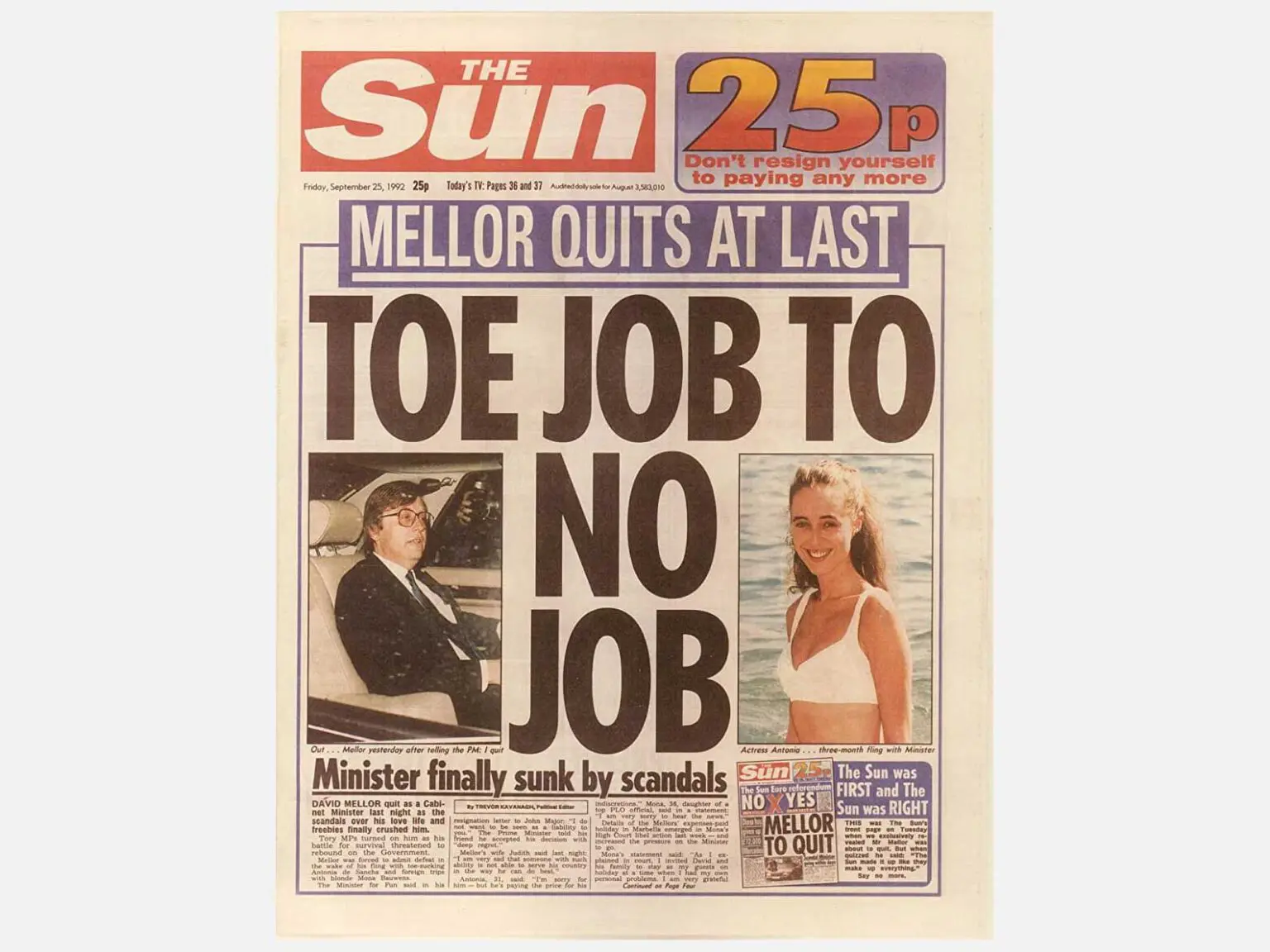
Six months later Mellor had to resign and there followed a succession of incumbents with much less personal interest. But the department stayed in place.
Chris explained that when he was appointed, he wanted to change both the name and the atmosphere of the department. He wanted the deportment to champion creativity not just as aesthetic but economically valuable.
Ed wondered about the addition of ‘Digital’ to the department in 2017. It’s important to us as it neatly summarises our relationship between arts and our work in the digital sphere. But is it relevant?

“Oh, it has enormous relevance”, Chris said. Digital is especially important in the creative imagination so its right that it sits within the department. The ability of arts organisations to put work online has been essential in past seven months.
But, Chris argued “there is no substitute fo the real thing, the visceral experience… the wonder of seeing the actual object”. Digital can go 90% of the distance but not all the way. Even socially distanced, experiencing the arts in person brings sheer delight.
Ed agreed, drawing on our recent Cog Night at Donmar to see their ‘Blindness’ production.
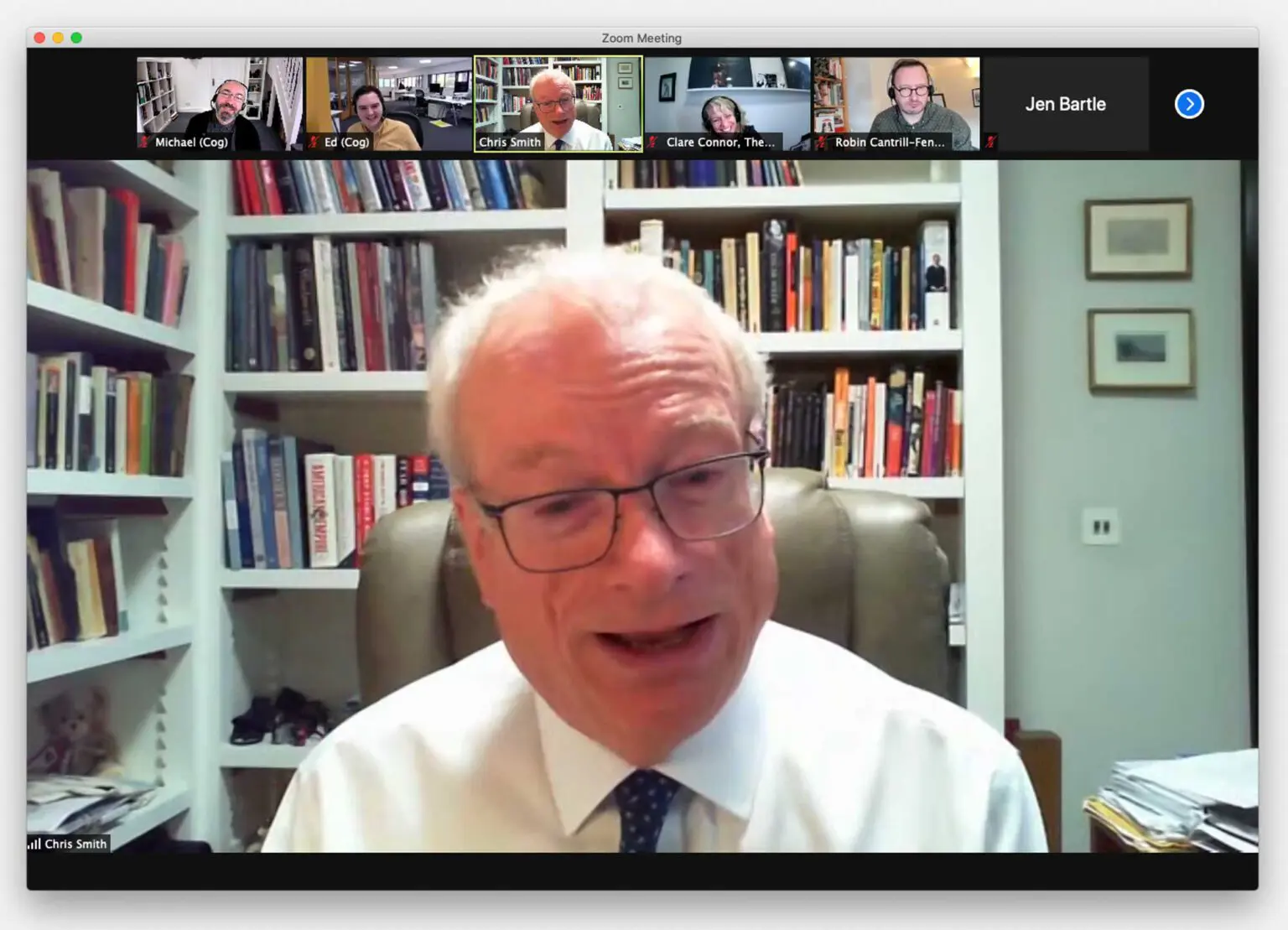
“Is there room for optimism?” Ed asked as his final question.
Yes, said Chris. But we mustn’t minimise the situation and the disruption. We should be pleased with the £1.57bn emergency arts fund. But it’s being delivered far too slowly. And he fears that not enough of it will get down the people delivering the artistic activity.
But, in amongst the gloom there has been some absolutely wonderful work. The Artemisia Gentileschi show at the National Gallery is groundbreaking and demonstrates what can be done, and there’s great stage work happening (Chris pointed especially to the acting of Andrew Scott).
On that positive note, Ed opened up to questions from our guests.
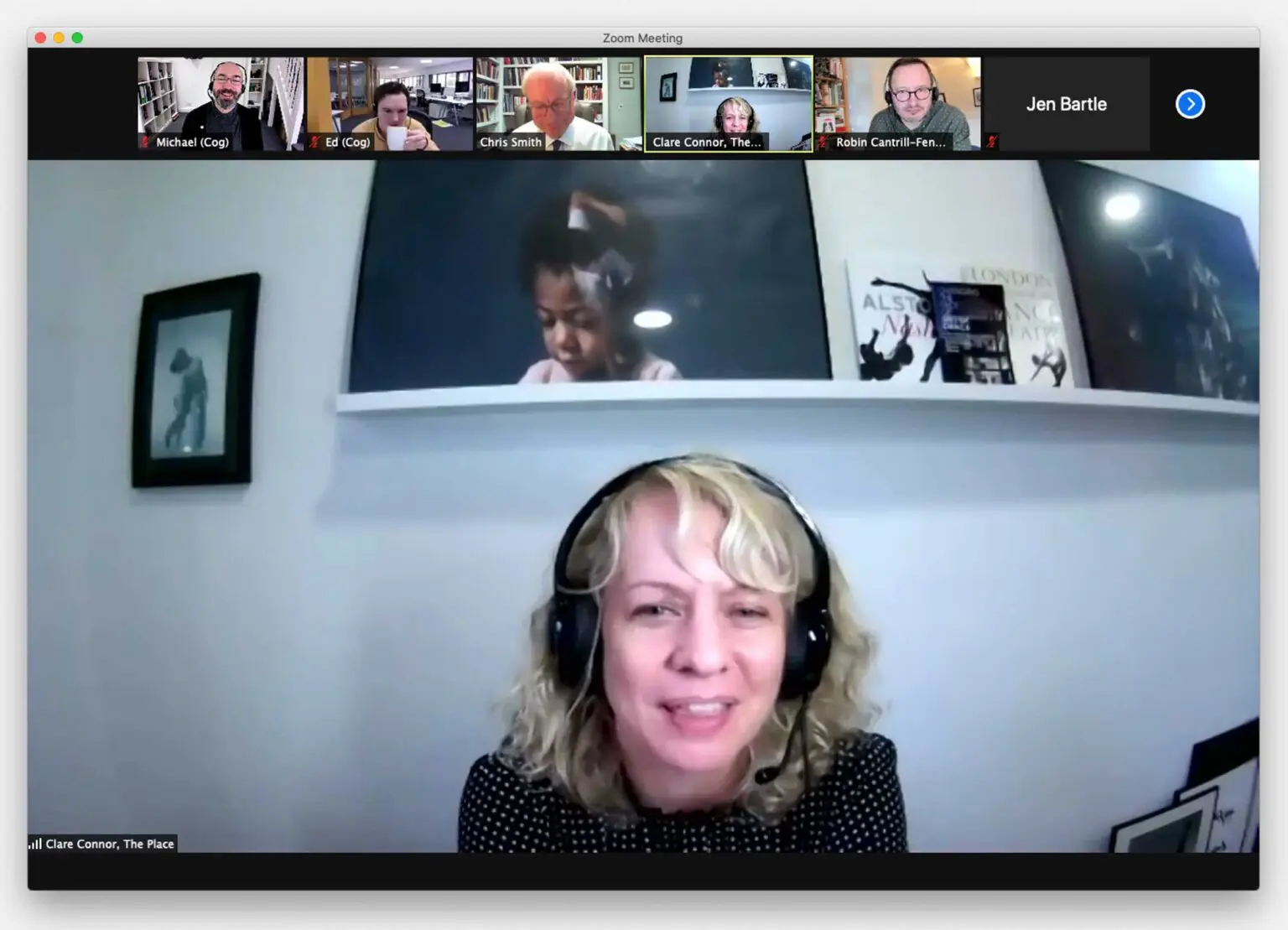
Clare Connor (Chief Executive at The Place) spoke about leadership.
She took a moment to recognise the contribution and huge loss of Ken Robinson (patron of The Place). She spoke about the need to nurture the next generation of leaders in the arts, and about the codes of governance that come with that. She asked, in that context and the framework of today’s situations, what does good leadership look like and how can we learn from difficult moments?
Chris took time to speak about how sad he was at the loss of Ken Robinson. He was a wonderful champion for the need to nurture creativity through all education. Children are inherently creative but we seem to spend our time telling then to ‘put a lid on it’. Ken understood that and argued the case but the Department of Education never listened.
Chris talked about leadership from his perspective. He gave the example of his time at the Environment Agency. He was there during a period of unprecedented flooding, when the press were looking for a scapegoat and he was the figurehead they aimed for.
He talked about the importance of supporting your team, of protecting them, being being loyal and recognising their contributions. He explained that he had happily taken the criticism until a moment when Eric Pickles went on TV to ‘apologise for having listened to the Environment Agency’. At that point Chris went on the offensive – you can have a go at me, as Chair that’s part of my job, but you cannot criticise those in my team who work so hard and know so much more than you.
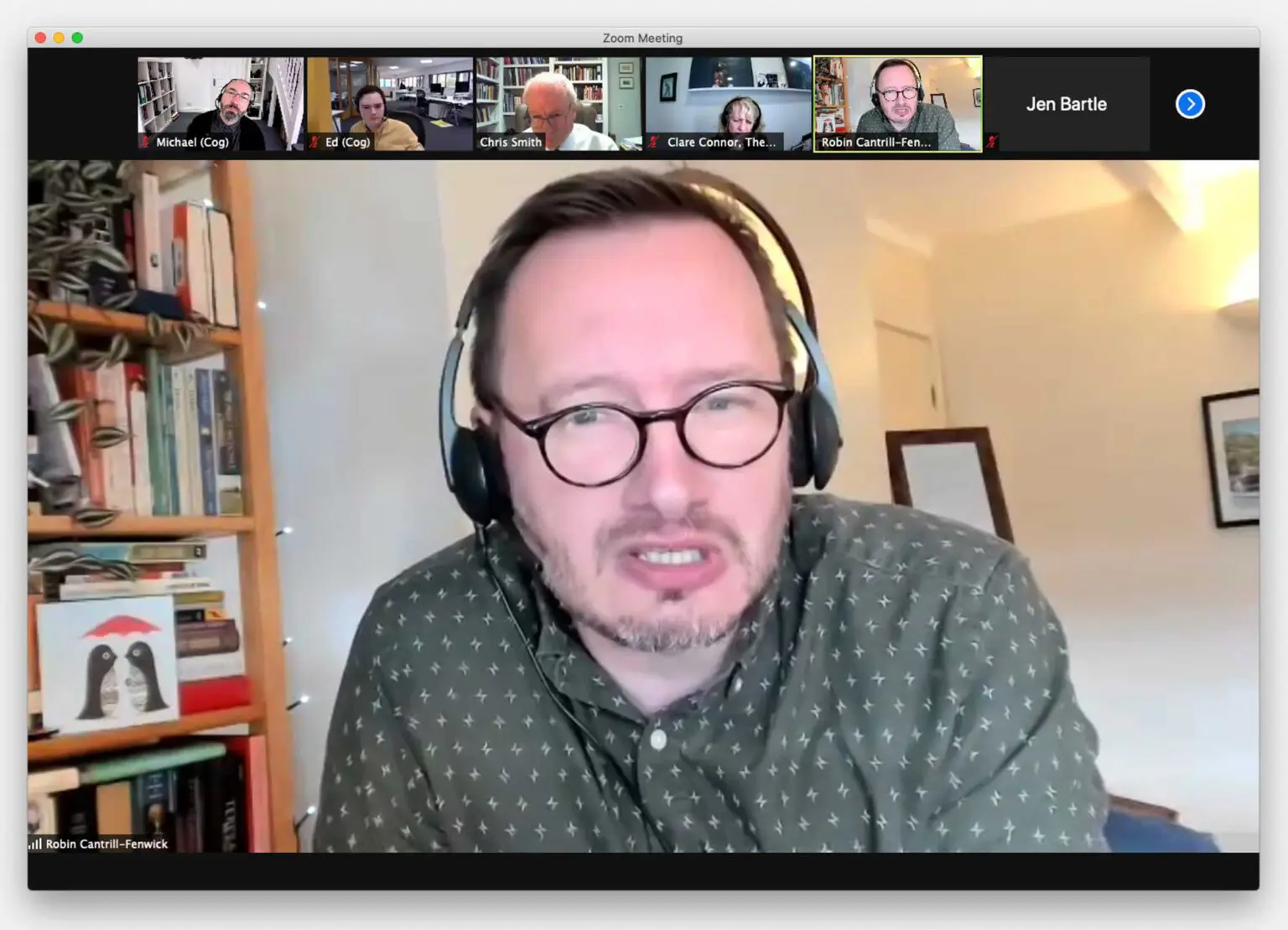
Our next question was from Robin Cantrill-Fenwick, Chief Executive at Baker Richards.
Robin spoke of the dual arguments of morality and equity. “Do we need a Marshall Plan for the arts?” He asked.
“There is a need but you are not going to see it”
Chris’s fear is that when we get to next year (or beyond) when the crisis is dissipating, we are likely to be back to austerity. There will be very little appetite for new funding for culture. But that shouldn’t stop us arguing for it.
What has become really obvious is that the arts have been missed: “It’s taken a little light out of everyone’s life”.
What is needed is some imaginative thinking. For instance, why don’t we take all of the money from the National Lottery, for the next three years, and spend it solely on arts and culture (and sport)?
The treasury will be less against that because it isn’t taking revenue away.
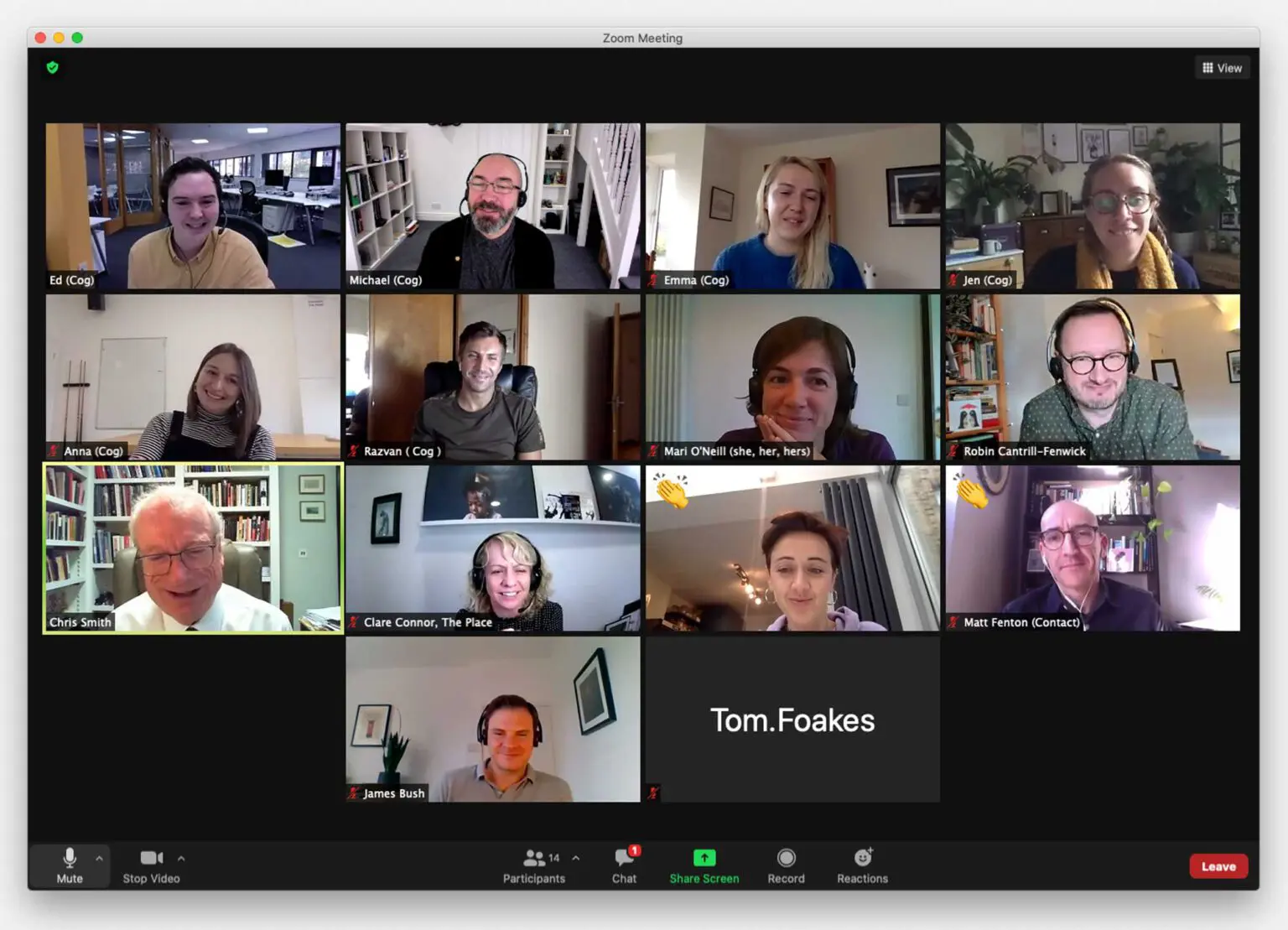
Chris wrapped up with one final anecdote.
He talked about the day he cut the ribbon at Science Museum, officially making the it free to enter. A young man dashed towards him with a child on his shoulders, He turned to the child and said – “say thank you to this man, it’s because of him we can be here today”.
What a beautiful legacy.
Thanks to everyone who came to this breakfast briefing. Special thanks, of course to the wonderful Chris Smith who gave his time so generously.
We’ll continue to hold these sessions, at least fortnightly and we’ll try to invite some guests when that feels appropriate. If you’d ever like join us, get in touch and let us know.
